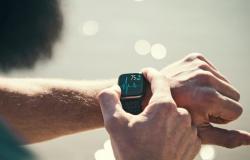
((Automated translation by Reuters, please see disclaimer https://bit.ly/rtrsauto))
(Corrects the number of placebo patients who achieved disease resolution in the second study, paragraph 7) by Patrick Wingrove
Eli Lilly LLY.N said Friday that its popular weight loss drug Zepbound helped resolve moderate to severe obstructive sleep apnea in 52% of patients in two late-stage trials.
U.S.-headquartered Lilly and Danish rival Novo Nordisk NOVOb.CO are racing to have their obesity drugs approved to treat other conditions. Novo’s Wegovy was approved as a treatment for heart disease in March, while Lilly’s trial of Zepbound for heart disease is expected to conclude this year.
In April, Lilly said Zepbound, known by the chemical name tirzepatide, helped reduce episodes of irregular breathing in patients with obstructive sleep apnea by 55% in the first study and 62.8% in the second.
Patients in the first study received tirzepatide, while those in the second tested the drug in combination with continuous positive airway pressure (PAP) therapy, which involves pumping air into the lungs to maintain the airways. open during sleep.
Full trial results, presented Friday at the American Diabetes Association Scientific Meeting in Orlando, Fla., showed that Zepbound helped resolve sleep apnea in 43 percent of patients taking the drug alone and in 51 .5% of those also using continuous positive airway pressure.
According to Lilly, the criteria for resolution of the disease were: patients had fewer than five episodes of shallow or no breathing per hour during sleep, or five to fourteen episodes, and did not suffer from severe excessive sleepiness during the day.
Lilly said 14.9% of placebo patients also achieved disease resolution in the first study, and 13.6% in the second.
Friday’s data showed that Zepbound helped reduce biomarkers linked to sleep apnea, including oxygen desaturation, blood pressure and C-reactive proteins – signs of inflammation that can indicate heart disease – a Lilly said.
The drugmaker said it has submitted its application to the U.S. Food and Drug Administration for approval of Zepbound as a treatment for obstructive sleep apnea and will submit it to other regulatory agencies. worldwide over the coming weeks.
Lilly said the overall safety of tirzepatide in these trials was similar to previous studies, with the most common side effects being diarrhea, nausea, vomiting and constipation.
The Indianapolis-based drugmaker presented data earlier this month showing that Zepbound helped treat liver scarring in patients with a difficult-to-treat fatty liver disease called metabolic dysfunction-associated steatohepatitis, or MASH (metabolic dysfunction-associated steatohepatitis).





